Dr. Dhruba Gautam
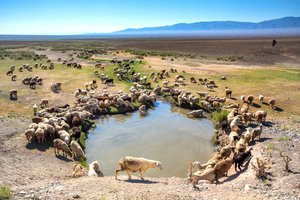
Confronting Climate Extremes And Environmental Crises In Central Asia: Urgent Action To Strengthen Resilience, Resource Sustainability, And Regional Cooperation
Central Asia is facing a growing climate and environmental crisis with rapid glacier loss, water scarcity, land degradation, and extreme weather, threatening livelihoods, ecosystems, and stability. In response, countries have launched regional and national initiatives, supported by international organizations, to improve water management, combat desertification, adapt to glacier loss, reduce pollution, and enhance climate resilience. Still, urgent and scaled-up action is required to secure a sustainable future.
By Dr. Dhruba Gautam Jun 03, 2025
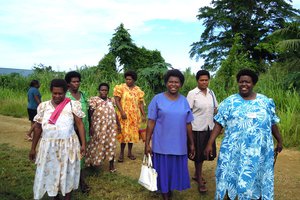
Beyond The Storm-Women, Climate, And The Power of Inclusion: Unlocking Stronger Climate Strategies through Gender-Responsive Action in the Pacific and Caribbean
Women in the Pacific and the Caribbean are central to climate resilience in that they are leaders in agriculture, fisheries, and disaster preparedness. Even so, their efforts often go unrecognized. Thus, as climate change exacerbates vulnerabilities, it will become critical to implement gender-responsive policies and community-driven initiatives that empower women, improve their access to resources, and strengthen their economic and social resilience.
By Dr. Dhruba Gautam May 27, 2025

Battling Tides, Rising Waters, And Shifting Shores: Polynesia’s Determined Advance Toward Climate Resilience
Surrounded by the crystal-clear waters of the Pacific, Polynesian nations are grappling with the relentless rise of the seas and increasingly violent storms, two phenomena which put their infrastructure and way of life at grave risk. Despite their steadfast commitment to achieving resilience through national policies and development programs, these islands are stymied by limited financial resources, aging infrastructure, and the loss of traditional knowledge, obstacle which highlight the urgent need to enhance local capacity and access climate finance to secure their future.
By Dr. Dhruba Gautam May 19, 2025

Sustaining Nature; Sustaining Culture: The Anthropology Of Resource Management In The Pacific And Caribbean
Across the Pacific and Caribbean, traditional resource management systems hold immense potential to guide sustainable futures. By integrating traditional knowledge into governance, recognizing communal tenure, co-creating development plans, and actively involving youth, communities can revitalize these systems. This approach not only strengthens ecological stewardship but also celebrates cultural heritage—paving the way for climate-resilient, inclusive, and culturally grounded development.
By Dr. Dhruba Gautam May 09, 2025
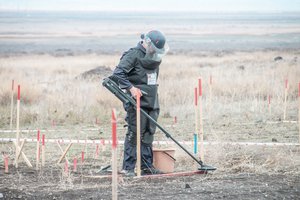
Buried Dangers, Lasting Impact: How Landmines Erode Peace, Stifle Recovery, And Endanger Communities' Wellbeing
Landmines devastate lives: they claim civilian victims, especially children, and cripple communities by rendering farmland unusable, displacing families, and blocking humanitarian and development efforts. A transformative response demands climate-smart demining, cutting-edge tools like AI and drones, inclusive and gender-responsive engagement, and robust and integrated support for victims underpinned by strong UN and donor coordination.
By Dr. Dhruba Gautam May 04, 2025
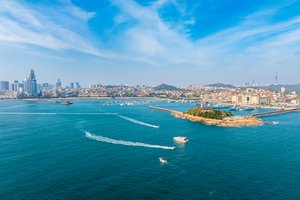
East Asia’s Environmental Evolution: Transforming Climate Challenges Into Drivers Of Ecological Progress And A Resilient Future
East Asia is grappling with a rapidly intensifying environmental crisis marked by desertification, extreme weather events, and the alarming loss of wetlands, all consequences of climate change, pollution, and unsustainable development practices. Addressing these challenges requires a unified and strategic approach that encompasses sustainable land management, climate-resilient infrastructure, and robust regional cooperation, all aimed at fostering resilience and safeguarding the region’s future.
By Dr. Dhruba Gautam May 02, 2025
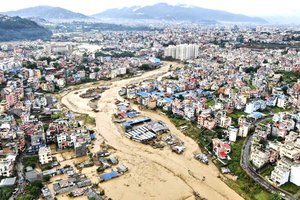
Navigating South Asia’s Climate Crisis: Harmonizing Policies And Practices For A Resilient Future
South Asia is facing an escalation of climate risks, driven in part by weak early warning systems, unchecked urban expansion, ecosystem degradation, and limited adaptive capacity, all issues that disproportionately affect marginalized communities. Despite progress in policy, institutional fragmentation and unequal access to climate finance continue to render action less than effective. Addressing these problems require enhanced regional cooperation, improved governance, and targeted investments to build resilience in the most vulnerable of populations.
By Dr. Dhruba Gautam Apr 29, 2025
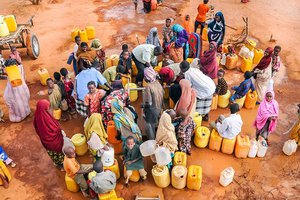
Climate Vulnerability And Resilience In West Asia: A Call To Strengthen Climate Governance And Accelerate Green Energy Investments
West Asia faces a complex mix of challenges, including water scarcity, weak climate governance, dependence on fossil fuel, rapid rates of urbanization, environmental degradation, and geophysical hazards. To build resilience, the region must prioritize regional water cooperation, strengthen climate governance, enhance institutions, invest in green energy, and diversify economies to reduce fossil fuel reliance and ensure long-term stability and sustainability.
By Dr. Dhruba Gautam Apr 21, 2025
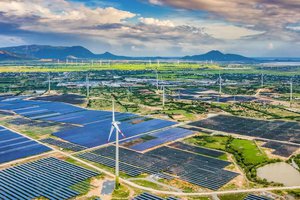
Evaluation of Energy Transitions in Southeast Asia: Key Successes, Emerging Gaps and Major Takeaways for Adopting Green Energy
Southeast Asia’s energy transition faces major barriers, including outdated infrastructure, inconsistent policies, high costs, and fossil-fuel dependence. To accelerate the adoption of renewable energyand build investor confidence, the region must invest in modern grids, technical skills, and innovative financingand provide a foundation of stable policies, public-private partnerships, and regional collaboration.
By Dr. Dhruba Gautam Apr 14, 2025

The Caribbean's Climate Crisis: A Call for Urgent Action
The Caribbean is locked in an unrelenting struggle for survival, with rising seas and intensifying storms threatening its very existence. Its communities stand at the forefront of the climate crisis, which urgently needs swift and sustained global action. Only through bold disaster risk reduction and comprehensive climate adaptation and mitigation strategies can we hope to protect their future and ensure resilience against the escalating climate emergency.
By Dr. Dhruba Gautam Mar 14, 2025
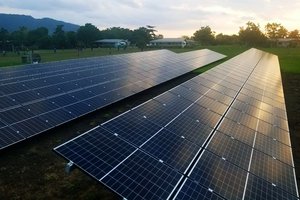
Renewable Energy-Sector Policy Initiatives And UNDP’s Role In The Pacific Region: The Path Ahead
Renewable energy plays a crucial role in diminishing reliance on fossil fuels, lowering energy expenses, fostering local employment, and enhancing climate resilience, but only if well-designed policies are in place to address multiple barriers.
By Dr. Dhruba Gautam Mar 04, 2024
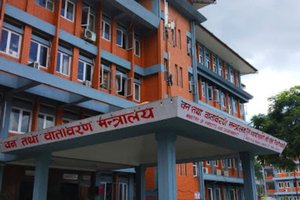
Operationalization Of Nepal’s National Adaptation Plan: Institutionalizing A Monitoring, Review, And Reporting System Is Crucial
Operationalizing Nepal’s NAP requires the institutionalization of a monitoring, review, and reporting (MR&R) system by building the capacities of human resources, improving data management, ensuring the regular maintenance and operation of the MR&R online platform, and accessing the climate finance needed to foster a climate-resilient society.
By Dr. Dhruba Gautam Jan 09, 2024
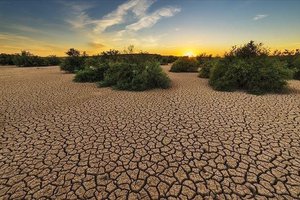
Building A Pacific Region Resilient To Climate Change: A Seven Step Approach Is Urgently Required
Building resilience to climate change in the Pacific region necessitates adopting comprehensive strategy that encompasses both policy and programmatic measures. The integration of public-private partnerships, regional cooperation, solidarity, and collaborative efforts in research and knowledge management serves as additional crucial components in advancing this initiative.
By Dr. Dhruba Gautam Jan 04, 2024
Nepal’s DRRM Policy Landscape: Well On The Way To Making Nepal Ready And Able To Respond To Disasters
Despite its exposure to multiple natural hazards, Nepal has a very strong foundation for building its resilience to disasters, especially if it manages to reform the few characteristics of its disaster risk reduction and management system that still need improving.
By Dr. Dhruba Gautam Aug 22, 2022
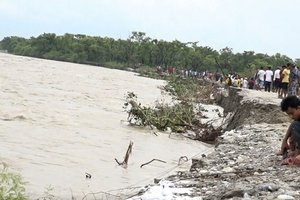
How Prepared Is Nepal For Future Disasters?
While Nepal is currently beset by multiple natural hazards, it is making good progress in preparing itself to prevent them from turning into natural disasters through measures as varied as institutionalizing local emergency operation centers, training officials and community members, warehousing supplies, and facilitating shelters.
By Dr. Dhruba Gautam Aug 09, 2022
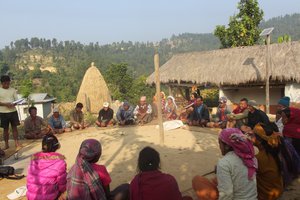
COVID-19 And Social Protection: WhatAre The Next Steps?
The formulation of social security-led plans and programs, development of asocio-economic recovery package, and recovery strategy will be instrumental to securing the social and economic rights of Nepal’s most-at-risk populations and to scaling up social protection to those threatened by COVID-19.
By Dr. Dhruba Gautam Jun 11, 2020
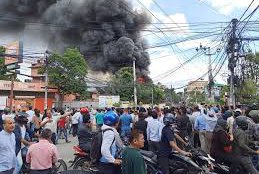
Growing Fire Incidents Wreaking Heavy Losses in Nepal
To reduce the impacts of fire in Nepal, Nepal needs to build the capacity of fire stations and fire fighters in fire preparedness and response mechanisms, establish operation and maintenance fund, enforce policy provisions, and mainstream good practices and learning in local government acts, regulations and strategies.
By Dr. Dhruba Gautam May 14, 2020
Latest Updates
- Durga Prasai Released on Bail
- 5 days, 13 hours ago
- Pakistani Embassy Organized A Talk Program In Kathmandu
- 5 days, 14 hours ago
- Prime Minister's Oli To Participation on LLDC3 In Turkmenistan
- 1 week, 2 days ago
- Hamas Launches A Coordinated Fake Campaign Against Israel Disseminating False Narratives and Fabricated Images
- 1 week, 3 days ago
- Minister Khadka Inspects Mahakali Irrigation Project, Directs Timely Completion
- 1 week, 5 days ago
- Syafrubesi-Rasuwagadhi road section in operation
- 3 weeks ago
- Gelephu Roadshow 2025: Connecting India and Bhutan for Sustainable Development
- 3 weeks, 2 days ago
- Embassy of Nepal in India and PHDCCI India-Nepal Centre Organised “India-Nepal Economic Cooperation Meet 2025
- 3 weeks, 6 days ago
- Bhanu Jayanti being celebrated today
- 4 weeks, 1 day ago
- Police Interrogate Two Monarchist Officials, Release Them After Written Commitments
- 4 weeks, 1 day ago





